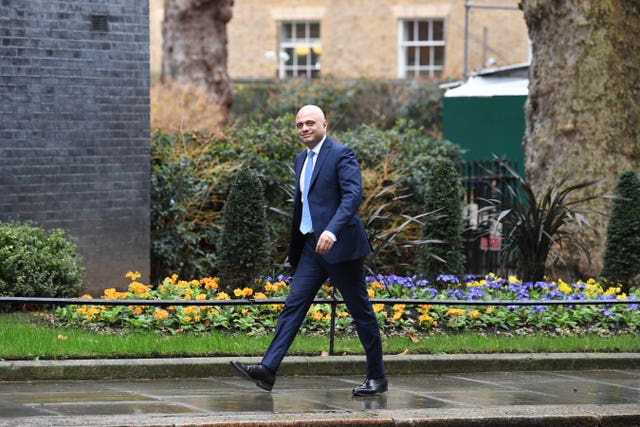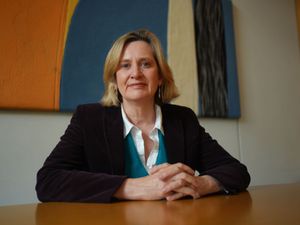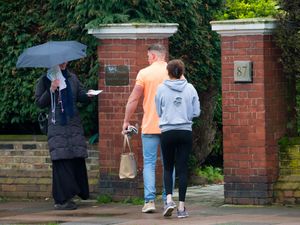Sajid Javid forced out as Boris Johnson tightens grip on power with reshuffle
Sajid Javid quit as chancellor after being ordered to fire his team of advisers as the price of staying in post, a source revealed.

Sajid Javid quit as chancellor after losing a power struggle with Boris Johnson in a dramatic Cabinet reshuffle.
The Prime Minister ordered Mr Javid to fire his closest aides and replace them with advisers chosen by Number 10 if he wanted to remain in post.
The former chancellor chose to quit instead and was replaced by his former deputy at the Treasury, Rishi Sunak, in the biggest shock of Mr Johnson’s shake-up of his ministerial team.
Mr Sunak will take the job having agreed to a joint Number 10-Number 11 team of aides.
The bombshell – less than a month before the Budget – follows tensions between the ex-chancellor and Mr Johnson’s senior adviser Dominic Cummings.
In August, Mr Cummings had fired Mr Javid’s aide Sonia Khan and it appears Number 10 wanted to go further in keeping a closer eye on the chancellor.
Mr Javid said that “no self-respecting minister” could accept the conditions being imposed.
“He has turned down the job of Chancellor of the Exchequer,” a source close to Mr Javid said.
“The Prime Minister said he had to fire all his special advisers and replace them with Number 10 special advisers to make it one team.
“The Chancellor said no self-respecting minister would accept those terms.”

Before the explosive meeting with Mr Johnson, Mr Javid had walked smiling into Number 10 in a sign that he expected to remain in place ahead of the March 11 Budget.
The Prime Minister’s official spokesman said that preparations for the Budget would continue under the new Chancellor.
“Extensive preparations have already been carried out for the Budget and they will continue at pace,” the spokesman said.
Mr Javid’s departure came after:
– Julian Smith was unceremoniously dumped as Northern Ireland secretary.
– Andrea Leadsom was sacked as business secretary.
– Theresa Villiers lost her job as environment secretary.
– Geoffrey Cox was sacked as attorney general
– Esther McVey lost her job as housing minister.
But along with the ministerial exits, the reshuffle – which Downing Street insiders had predicted would be “conventional” before the row with Mr Javid – saw promotions for MPs who are highly rated by Number 10.
Alok Sharma was promoted from international development to become the new Business Secretary and he will also be minister for the Cop26 UN climate summit.
Anne-Marie Trevelyan joins the Cabinet as International Development Secretary, having previously been a defence minister.
Oliver Dowden has become a full Cabinet member as Culture Secretary, having previously attended the meetings as paymaster general.
George Eustice was promoted to Environment Secretary from his previous role in the same department.
Brandon Lewis was appointed as Northern Ireland Secretary.
Former Brexit minister Suella Braverman returns to the Government as Attorney General.
Ex-Brexit secretary Stephen Barclay replaces Mr Sunak as Treasury Chief Secretary.
Home Secretary Priti Patel, Foreign Secretary Dominic Raab, Chancellor of the Duchy of Lancaster Michael Gove, Justice Secretary Robert Buckland, International Trade Secretary Liz Truss and Health Secretary Matt Hancock were all confirmed in their existing roles.
Other ministers remaining in their posts include Work and Pensions Secretary Therese Coffey, Education Secretary Gavin Williamson, Housing Secretary Robert Jenrick, Transport Secretary Grant Shapps, Defence Secretary Ben Wallace, Scottish Secretary Alister Jack and Lords leader Baroness Evans of Bowes Park.
Until Mr Javid’s exit, the most surprising move by the Prime Minister had been the sacking of Mr Smith just weeks after brokering the deal which restored the powersharing administration in Stormont.
Irish Taoiseach Leo Varadkar said Mr Smith was “one of Britain’s finest politicians of our time”.
Speculation about Mr Smith’s position centred on the terms of the Stormont deal, amid Tory concerns it could pave the way for prosecutions of British soldiers.
But allies of the axed minister said it was “absolute crap” to suggest that Mr Johnson and Number 10 had not been kept informed of the process and details of the deal.
Although female ministers were axed in the reshuffle, Downing Street indicated that there would not be a reduction in the number of women around the Cabinet table.
Former culture secretary Baroness Morgan had already said she was leaving her role, while Mrs Leadsom, Ms Villiers and Ms McVey were all sacked.
Ms Villiers said: “What the Prime Minister giveth, the Prime Minister taketh away: just over six months ago, I was delighted to be invited by the Prime Minister to return to government after three years on the backbenches.
“This morning he told me that I need to make way for someone new.”
Former Tory leadership contender Ms McVey said she was “very sorry to be relieved of my duties”.





